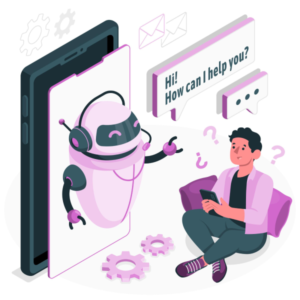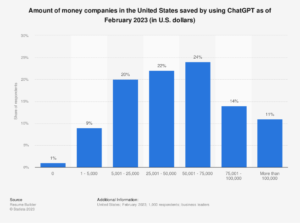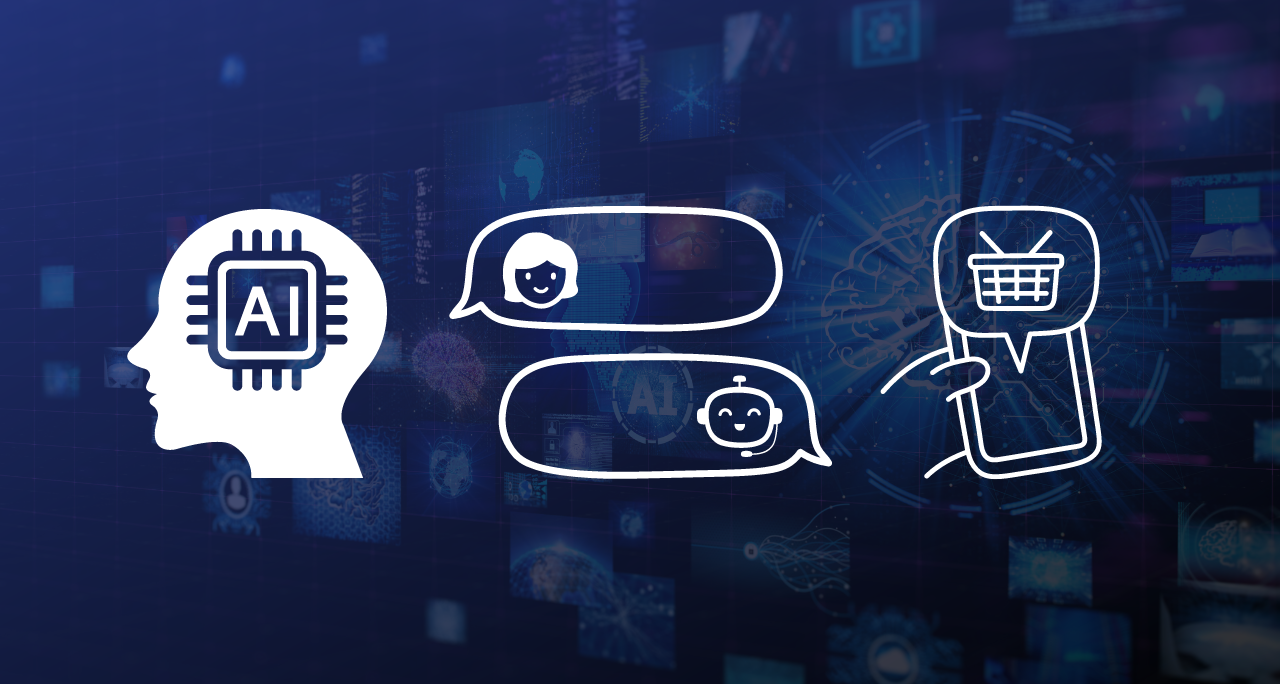Welcome to the eCommerce future, where cutting-edge technologies transform the online purchasing experience. Generative Pre-trained Transformer (GPT) technology is one such emerging innovation. GPT technology, with its ability to read and generate human-like text, is changing how we interact with online platforms, notably in eCommerce.

GPT technology has recently been smoothly integrated into merchant sites, improving the consumer experience and driving increased revenue. eCommerce platforms are pushing the boundaries of personalization, search functionality, and customer service using GPT models. The potential benefits of implementing GPT in eCommerce are extensive, providing a glimpse into a future in which online buying becomes more convenient, engaging, and personalized.
In this article, we’ll look at how GPT integrates with merchant sites and improves the consumer experience in incredible ways, from personalized product recommendations to intuitive search functionality and round-the-clock customer assistance. We will also highlight how it empowers merchants by increasing sales and conversions through improved product descriptions, dynamic pricing, and optimal inventory management.
The Impact of GPT Technology on eCommerce
GPT technology is reshaping the eCommerce sector by bringing artificial intelligence (AI) developments to the forefront of online shopping. Understanding how GPT technology works and differs from other AI approaches is critical to grasping its disruptive potential in eCommerce.
GPT Technology: Harnessing the Potential of Language
GPT technology is based on a deep-learning model called a Transformer. GPT models learn from massive amounts of text data and use this information to generate human-like replies, unlike standard rule-based AI systems or supervised learning algorithms requiring explicit instructions.
GPT technology is set apart by its language generation capabilities. It has comprehensive language knowledge and can generate coherent and contextually suitable text according to provided prompts by training on different and extensive sources such as books, papers, and webpages.
eCommerce GPT Technology: Transforming Customer Experiences
GPT technology is transforming how customers engage with online platforms, giving a slew of benefits that improve their buying experiences.

40% of consumers return a product due to poor product content.
Writing compelling and informative product descriptions is critical to increasing sales. Merchants can apply GPT technology to automate and improve this process by providing high-quality, engaging, and SEO-friendly product descriptions.
GPT models develop intriguing stories highlighting products’ unique features and benefits using the large quantity of available product data, user reviews, and associated information. Retailers save time and effort while ensuring consistent and persuasive product descriptions that captivate customers and increase conversions.
Only 1.62% of e1.62% of ecommerce website visits convert into a purchase.
Customers frequently struggle to find the right product among many possibilities. GPT technology is tackling this issue by improving eCommerce search capabilities. It can interpret complex search queries and give more precise and pertinent search results by exploiting their natural language processing capabilities. GPT-powered search capability improves product discoverability, streamlines the buying process, and increases customer satisfaction by understanding specific product qualities, interpreting consumer intent, or delivering contextual suggestions.
66% of consumers want businesses to understand their needs, but only 32% of executives believe they can accomplish that.
Personalization is a driving force in modern eCommerce, and GPT is a powerful tool for creating tailored buying experiences. It can produce personalized product suggestions by analyzing client behavior, preferences, and historical data. These recommendations consider previous purchases, browsing history, and client demographics. Customers are thus presented with highly relevant and curated product choices, resulting in a personalized shopping journey that boosts engagement, satisfaction, and, ultimately, conversions.
eCommerce GPT Technology Implementation Success
Several foresighted companies have embraced GPT technology and effectively integrated it into their eCommerce platforms, demonstrating its transformational potential.
With the integration of GPT-3 into its CXM platform, OvationCXM is redefining customer experience management. OvationCXM provides tailored and real-time AI support that provides human-like responses and intelligent solutions by harnessing the power of GPT-3 and ChatGPT. This relationship enables firms to improve communication, offer more competent assistance, and better anticipate consumer demands.
The advantages of using GPT-3 in OvationCXM’s AI-based products are substantial. It allows for better information delivery and insights into customer journeys, helping enterprises better understand and respond to consumer needs. OvationCXM can modify responses and decrease system friction by evaluating sentiments and intents during interactions, providing faster and more personalized customer care.
Algolia uses the meaning of text rather than specific keywords to help improve search functionality on websites. They use GPT technology to offer a meaning-driven search that returns accurate results faster than traditional navigation and filters.

In April 2023, Shopify unveiled tools to help retailers create product descriptions. Enter a few product characteristics or keywords you want to rank for in search engines, and the tool will build a product description for you right on the product setup page in your store’s admin. Merchants with an extensive catalog can create a consistent tone across all their products and focus on running the business.

Instacart is combining AI personalization and GPT technology to form a revolutionary product. Using a Chat GPT plugin, users can ask Instacart for meal suggestions in natural language. The app will respond with a recipe and preparation ideas and then ask if the user wants the ingredients delivered to their door.

Users can now rely on ChatGPT to take on their meal-planning inspiration. Instacart turns that inspiration into reality by leveraging the broad catalog encompassing more than 1.5 million products from over 1,100 retail banners. You can watch the video demo here.
GPT technology ensures retailers can provide consumers with the right tools for their changing demands and needs. As technology evolves, we expect more eCommerce enterprises to follow suit. Amazon says they have been working on GPT tools for a long time, and fashion retailer JD.com says it will launch a tool similar to Chat GPT.
Mercari, an online secondhand marketplace, launched a shopping assistant program dubbed Merchat AI to help recommend products.
Zalando, a German eCommerce behemoth, announced the launch of a similar ChatGPT-powered service to assist shoppers in identifying things based on fashion phrases or questions they ask.
Klarna, a shopping service and payments platform, announced in March 2023 that it is cooperating with OpenAI to provide consumers with curated product recommendations.

The list of use cases continues to grow as these companies reap the benefits.
Summarizing the Benefits of GPT Technology for Merchants
GPT technology in eCommerce provides numerous advantages to retailers, changing how they operate and connect with customers.
One significant advantage is the prospect of more sales. Merchants can automatically develop appealing and compelling product descriptions by exploiting GPT’s language creation capabilities. These improved product descriptions effectively express the value and distinctive aspects of the product, catching client attention and boosting conversions. Merchants can effectively present their services and boost sales by creating more engaging and helpful content.

GPT technology is also crucial in fostering consumer interaction. GPT models can produce personalized product suggestions by evaluating client data, preferences, and behavior. These recommendations are highly personalized for each customer, generating a sense of connection and understanding. Merchants can improve customer satisfaction and create long-term engagement by personalizing their buying experience to individual tastes. Customers are more inclined to make repeat purchases and establish loyalty when they believe the merchant understands and values them.
Cost Savings through Automation and Efficiency
In addition to increasing sales and improving consumer interaction, GPT technology saves retailers’ money. Automation is one area where cost savings can be realized. By streamlining content development techniques with GPT-powered product description generation, merchants can save time and resources. Merchants can maintain consistency while freeing up human resources for other essential duties.
According to a recent survey conducted in February 2023, approximately 25% of American business leaders reported cost savings ranging from $50,000 to $70,000 by leveraging ChatGPT. Moreover, 11% of respondents mentioned substantial savings exceeding $100,000 since integrating ChatGPT into their workflow.

Furthermore, GPT-powered chatbots transform customer service by offering quick and accurate support. These intelligent chatbots can answer frequent queries from customers, provide product information, and aid in purchasing decisions. Merchants can cut costs associated with hiring and training extra support employees by automating customer care. Chatbots powered by GPT provide rapid and accurate responses, lowering response times and increasing customer satisfaction. Customers benefit from immediate assistance; retailers can provide round-the-clock service without additional costs.
Another significant advantage of GPT technology for retailers is its personalization. GPT models can identify individual preferences and give personalized recommendations by exploiting customer data. This personalization enhances the whole purchasing experience by creating a sense of exclusivity and personal attention. Customers like receiving product recommendations tailored to their preferences and interests. Personalization improves consumer satisfaction, increases conversions, and encourages repeat purchases.
The H&M chatbot on Kik messaging application is one example of a virtual personal stylist chatbot. This chatbot asks clients questions about their style preferences, body shape, and budget using Chat GPT technology. Based on their comments, the chatbot generates outfits and accessories that meet their criteria. Customers can either buy the things immediately or save them for later. The H&M chatbot has helped the brand improve sales and create a more personalized shopping experience for its customers since its inception.

Navigating GPT Technology Implementation: Key Considerations for Merchants
Implementing GPT technology in eCommerce has various advantages, but merchants must be aware of the difficulties and considerations of its use. Merchants can guarantee the successful integration of GPT technology into their e-commerce platforms by knowing and resolving these problems. Let’s look at some of the significant considerations.
Data Accuracy and Privacy Concerns
Privacy issues are a significant barrier for retailers utilizing GPT technology. GPT models require massive volumes of data to provide accurate and individualized answers. Merchants must guarantee that consumer data is appropriately handled and following applicable privacy legislation. To protect privacy and sustain customer trust, gaining proper consent and securing customer information is critical.
In March 2023, Italy’s data regulator issued a temporary emergency order directing OpenAI to stop utilizing personal information from millions of Italians in its training data.
Another factor to take into account is data accuracy. GPT models are trained on enormous amounts of data, and the quality and accuracy of this data are critical to the models’ effectiveness. Merchants should attempt to have diverse, representative, and high-quality training data. Data must be maintained and updated regularly to represent changing customer preferences and evolving product catalogues. Chat GPT, for example, struggles with any information post-2021.

Ongoing Upkeep and Optimization
GPT technology implementation needs constant maintenance and optimization. GPT models may need to be updated frequently to add fresh products, adjust to changing customer behavior, and enhance accuracy. To maintain the best performance, merchants should commit resources to monitor, refine, and fine-tune their GPT models constantly.
Considering the processing resources required to deploy and run it effectively is also crucial. These models can be computationally demanding. Thus, merchants may need to invest in appropriate infrastructure or cloud-based solutions to support the use of GPT technology in their eCommerce environment.
Furthermore, merchants should be aware of any biases resulting from training data. GPT models learn from the data on which they are trained, and biased training data might yield biased replies or recommendations. Merchants should carefully curate and analyze their training data to avoid biases and maintain fairness in customer interactions.
Merchant Best Practices
Here are some pointers and best practices for businesses thinking about incorporating GPT technology into their eCommerce sites:
1. Prioritize Data Privacy: Make sure consumer data is handled securely and per privacy laws. To protect consumer information, obtain proper consent and implement robust safeguards.
2. Validate and Monitor Data Quality: Regularly assess the quality and accuracy of training data to ensure that GPT models work optimally. Maintain training data that is up to date and reflects changing client preferences and product catalogs.
3. Allocate Maintenance Resources: Allocate resources for ongoing maintenance, monitoring, and optimization of GPT models. Review and refine the models regularly to improve performance and react to changing client needs.
4. Invest in Computational Resources: Assess and invest in appropriate computational resources to enable the adoption and operation of GPT technology in your eCommerce ecosystem. If necessary, consider cloud-based options.
5. Bias and Fairness: Be aware of potential biases in training data and take action to reduce them. Review and audit the GPT models regularly to guarantee fairness and avoid biased responses or recommendations.
Merchants can successfully handle the deployment of GPT technology in their eCommerce sites by addressing these issues and adopting best practices, providing a great customer experience and reaping the benefits of this revolutionary technology.
GPT offers enormous promise for both merchants and customers. It provides several benefits that can revolutionize how merchants operate and interact with consumers. Merchants can drive sales through appealing product descriptions, improve customer engagement through personalized experiences, and save costs through automation and efficient customer support by harnessing GPT’s language creation capabilities.
GPT technology in the future of eCommerce
It is critical for merchants considering GPT to understand the power of personalization and its impact on the consumer experience. It can enable personalized product recommendations, interactive information, and enhanced search capabilities, leading to a more engaging and intuitive shopping experience. Merchants can differentiate themselves from the competition and build closer customer relationships.
Looking ahead, the use of GPT technology in eCommerce will only increase even further. As GPT models evolve and grow more sophisticated, they will allow for even greater personalization, enhanced customer insights, and more seamless interactions. Future advancements will open the path for genuinely immersive and intuitive e-commerce experiences, eliminating the lines between offline and online buying.
As retailers negotiate this volatile market, staying current on GPT improvements and exploring how it could be implemented into their eCommerce sites is critical. Collaboration with technology partners, investment in appropriate computational resources, and a focus on data privacy will be vital in realizing the full potential of GPT technology.





